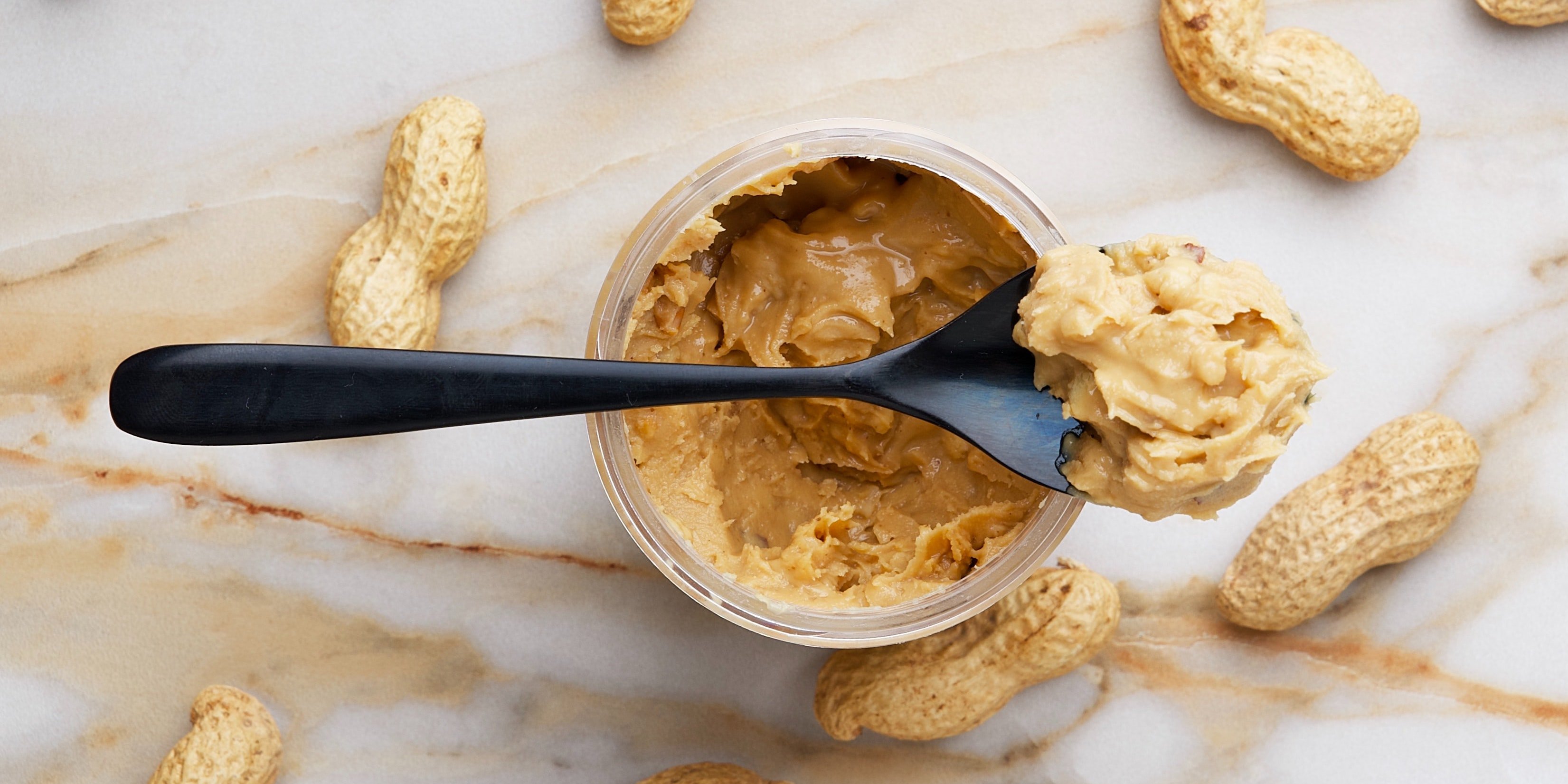Ahh, peanut butter.
If you were to ask most personal trainers or nutrition coaches for their opinion on this very popular spread, I’d be willing to bet that a majority of them would be able to tell you at least one or two of their favorite foods to eat with it.
And for some, peanut butter has been a part of our diets since elementary school age. Who can forget the good old days of hanging out with our classmates on the playground, offering to trade our ham and cheese sandwich for someone else’s PB&J?
But if you were to also ask whether or not peanut butter is actually healthy, you may get conflicting answers. Some might argue that peanut butter is an excellent source of protein and is therefore great for weight loss, while others might say that peanut butter is high in fat and calories. So what gives? Is peanut butter actually healthy?
On a learning streak? Check out our free online nutrition courses for even more great content!
Peanut Butter Nutrition
According to the USDA FoodData Central Database, two tablespoons (32g) of peanut butter contains about 190 calories, 18g of fat and 7g of protein on average. That’s not a bad serving of protein for a golf ball-sized portion! For someone who might be trying to moderate their food intake and/or change their body composition, eating protein-rich snacks that are also high in fiber might help to increase feelings of satiety as well as support activity levels and recovery. Additionally, peanuts also contain several different vitamins and minerals, the most prevalent being niacin and potassium.
It can be hard to overlook the calorie and fat content. While 190 calories and 18g of fat can seem like a lot in a two-tablespoon portion, we should consider other factors. First, dietary fats are not the enemy!
Most of the fats in different kinds of peanut butters come from monounsaturated and polyunsaturated fat. Less than 5% on average typically comes from saturated fats (which is the type that clogs our arteries). According to the American Heart Association (AHA), a diet that includes high levels of monounsaturated fats can improve a person’s blood cholesterol levels, which in turn can potentially lower the risk of heart disease and stroke.
Not all peanut butters are made the same. Natural peanut butters are made of only two ingredients (peanuts and salt), while most peanut butters found in your big box grocery stores are also mixed with sugars and oils for taste, texture, and preservation.
These peanut butters tend to have higher concentrations of saturated fats. For that reason, I highly recommend taking a few extra seconds to check the ingredients list before buying. Be wary of varieties that list “partially hydrogenated oil,” “hydrogenated oil,” or “palm oil.”
The Verdict
If you follow my content and are familiar with my beliefs around food and dieting, you likely know that I don't label foods as inherently "good" or "bad," or "healthy" or "unhealthy." The nutrition benefits (and taste!) of peanut butter can be worth it for some. Especially for those of us who enjoy having it, who might not be eating enough to support your needs or goals, and/or those of us who might not be eating enough protein regularly. You can always pair it with dark chocolate too!
We can’t dismiss the fact that peanut butter is a pretty calorie-dense food, though. As it is with any calorie-dense foods, it's important to enjoy it in moderation as part of an overall balanced diet. If you want the flavor and protein of peanut butter but with fewer calories, consider trying a powdered version instead of the real thing.
Finally, treat yourself, but don’t cheat yourself. It’s easy to go overboard (even unintentionally) if you’re eyeballing a tablespoon with measuring spoons, so I recommend weighing your portions if you’re trying to moderate your intake (especially if you’re trying to shed body fat).
To see how much of a difference it can make to weigh your foods instead of using volume measurements, check out this YouTube video I shared in which I demonstrated with portions of oatmeal and peanut butter.
















